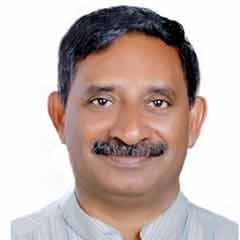A unique experiment is on in Wayanad to recharge Kabani River and rescue drought-hit villages

Mail This Article
Nearly 800 volunteers have built a check dam with sandbags across the Kabani River in Wayanad district. Now they wait for a torrent of water from the Karapuzha Dam to arrive and rescue the villages in the Pulpalli and Mullankolly panchayats from severe drought.
The experiment, to divert water from the dam to recharge a once gushing river that has now been reduced to a mere bed of rocks, is a first in the district.
Around 8 am on Wednesday, valves of the Karapuzha Dam were opened by the Irrigation Department, releasing 5 cumecs (cubic metres per second) into the canals. The water is expected to reach Kabani in two days, covering 60 kilometres. The authorities projected the water to cover half that distance by midnight Wednesday and reach Mathurvayal via Panamaram Puzha. Water from the Banasura Sagar Dam would be released later.
When the water from Karapuzha arrives at the check dams, the authorities are hopeful of reactivating the dried-up sources of now-defunct supplies in Pulpalli and Mullankolly. A huge well on the banks of the Kabani River, from which 60 lakh litres of water was pumped to thousands of households in the panchayats, dried up almost a week ago. According to the Department of Agriculture, at least 200 hectares of farmlands have been hit by the drought, leading to around Rs 25 crore in losses.

Jose Nelledam, ward member of Mullankolly said the two panchayats have around 20,000 connections of the Kerala Water Authority. “District Collector Dr Renu Raj, who is also the chairperson of the District Disaster Management Authority, assured the people’s representatives that water from the reservoirs will be ensured to quench the thirst of the two panchayats,” said Nelledam.
Officials from the Karapuzha Dam Authority visited Kabani and advised the community leaders to construct a check dam to arrest the flow of the water reaching Kabani. They said that in the absence of check dams, the water from Karapuzha would head toward the Beechanahalli Dam in Karnataka, leaving Kabani dry again.
It is alleged that the water level in Kabani had dipped so drastically after Beechanahalli in the lower reaches of the river was drained, in an emergency mode, to ensure sufficient water for Bengaluru City.

The volunteers, who participated in the construction of the check dam, included members of Kudumbasree Self-Help Groups, Haritha Karma Sena, social workers, ward members and members of the administrative councils of the two panchayats.
According to Arjun G L, Assistant Engineer, Karapuzha Dam section, the release of water is a trial that would continue for four days. “We are also irrigating farmlands through a 26-km-long canal network,” he said.
The authorities are unsure of the effects such a high volume of summer release would have on the water bodies. The potential water loss during the transfer and the travel time is also not certain. The district administration has alerted people residing on the banks of the canals at Panamarampuzha and Koodalkadavu to expect a sudden rise in water level. However, the authorities are optimistic that the experiment would be a success.


